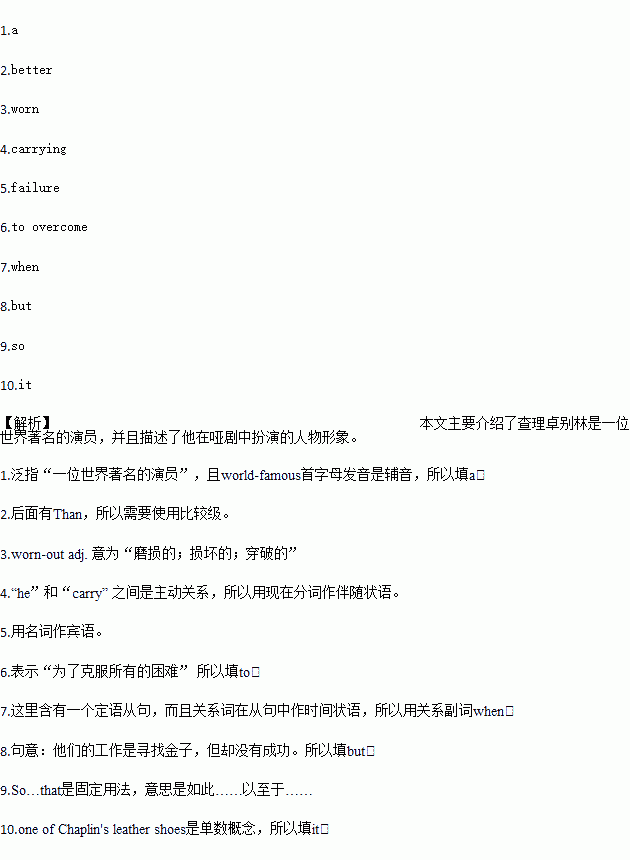题目内容
Charlie Chaplin was1.world-famous actor.Up to now nobody has been able to do this2.(good) than him.His charming character,the little tramp is well-known throughout the world.He played a poor and homeless person,who wore large trousers,3.(wear) shoes and a small round black hat,4.(carry)a walking stick.This character was a social5.(fail) but was loved by all who watched the film for his optimism and determation6. (overcome) all difficulties.The film The Gold Rush was set in California in the end of the nineteenth century7. gold was discovered and thousands of people rushed there searching for it.In the film,Chaplin and his friend are in California,too.Their job is in search of gold,8.without success.Instead,they are trapped on the edge of a mountain in a snowstrom in a small wooden house.They are9.hungry that they have to boil one of Chaplin's leather shoes in a pan and eat10..


 e. However,some of the more specific results are strange enough. For example,“practical and functional”shoes were generally worn by more“pleasant”people,while ankle boots were more linked with“aggressive”personalities. The strangest of all may be that those who wore“uncomfortable looking” shoes tend to have “calm” personalities. And if you have several pairs of new shoes or take extreme care of them,you may suffer from“attachment anxiety”,spending lots of time worrying about what other people think of your appearance. There was even a political calculation in the mix with more liberal(主张变革的)types wearing“shabbier and less expensive” shoes.
e. However,some of the more specific results are strange enough. For example,“practical and functional”shoes were generally worn by more“pleasant”people,while ankle boots were more linked with“aggressive”personalities. The strangest of all may be that those who wore“uncomfortable looking” shoes tend to have “calm” personalities. And if you have several pairs of new shoes or take extreme care of them,you may suffer from“attachment anxiety”,spending lots of time worrying about what other people think of your appearance. There was even a political calculation in the mix with more liberal(主张变革的)types wearing“shabbier and less expensive” shoes.